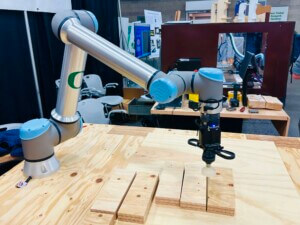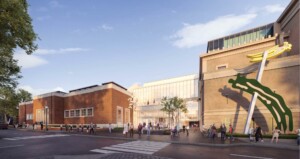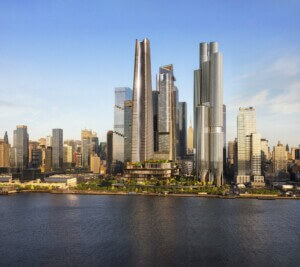Adre is a Portland, Oregon–based development company that is less than two years old. Under the guidance of its founder Anyeley Hallová, it has quickly made its presence felt.
At the AIA’s annual conference in Chicago last month, Adre’s upcoming Killingsworth office building was named one of six winning proposals in the Mass Timber Competition: Building to Net-Zero Carbon, organized by the U.S. Forest Service and the Softwood Lumber Board. Killingsworth will promote social equity through its goal of working with 30 percent BIPOC- and women-owned subcontractors and securing 50 percent of its equity from women and/or people of color. That same month, the Oregon Land Conservation and Development Commission made Hallová its first-ever Black female chair.
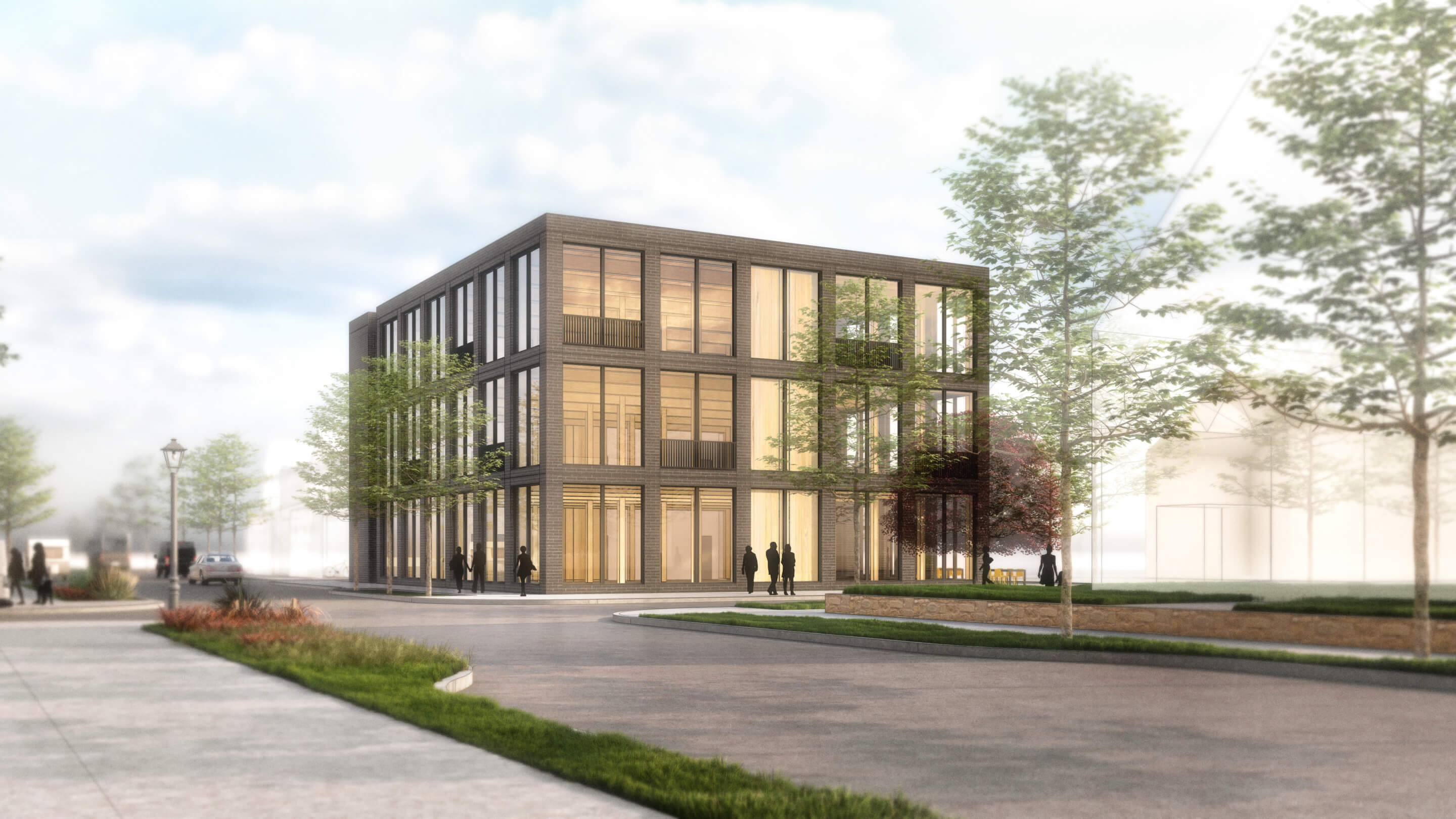
In April, the Meyer Memorial Trust headquarters in Portland, designed by LEVER Architecture, which Hallová helped oversee as a partner at her previous firm Project^, was named to the AIA Committee on the Environment’s prestigious Top Ten Green Projects list. In July, this project was named one of ten winners in the Urban Land Institute’s 2022 ULI Americas Awards for Excellence and advances as a finalist in the organization’s 2022 ULI Global Awards for Excellence.
“Development is usually about making money for your investors or creating value for your nonprofit organization. That’s fundamental,” Hallová told AN. “None of these ideas exist outside of the market sector, and that’s what’s actually interested me with the new company.”
You might say Hallová is feeling lucky. After all, Adre takes its name from the number seven in the West African language of Ewe. Even so, this developer makes her own luck—not just with a portfolio of pioneering sustainable design projects but with a mission-driven approach. In Portland, with one of the smallest Black populations of any large American city, as well as a state-wide legacy of racial exclusion, that kind of leadership is even more noteworthy.
“Anyeley uses development to build community,” Michelle J. DePass, former CEO of the Meyer Memorial Trust, said. “She is a very proud Black female developer in the Pacific Northwest who knows that she is rare. She doesn’t shy away from holding that mantle and allowing other people to dream about the world that they want.”
Hallová was raised in Florida near Fort Lauderdale, the daughter of a Ghanaian agricultural engineer. As a child, the family spent two years living in drought-stricken northern Nigeria, which inspired her interest in ecology and design. After high school, she first became interested in sustainable development while studying abroad in Costa Rica attending the School for Field Studies. “It’s where I had early training in thinking about the three-legged stool of sustainability: the social, the environmental, and the economic,” Hallová recalled. She then spent several years studying environmental systems (Cornell University), city planning (Massachusetts Institute of Technology), landscape architecture (Harvard University’s Graduate School of Design), before working as an associate urban designer in AECOM’s Atlanta office, creating master plans for several Caribbean cities.
Relocating to Portland in 2007, she landed at Gerding Edlen Development, helping to realize some of the first LEED-rated housing projects on the West Coast. Then, as a partner at Portland developer Project^ beginning in 2009, she married sustainability with design excellence on award-winning projects like the Origami multifamily complex by Waechter Architecture (which innovatively combined condos, townhomes, and ADUs) and a local headquarters for The Nature Conservancy, designed by LEVER Architecture.
“We would send her the plans of the building, and it would come back with maybe 200 red marks,” LEVER Architecture founder Thomas Robinson remembered. “She dives into the details of the design, always thinking of ways to make things better, but very thorough, very thoughtful, and really useful.”
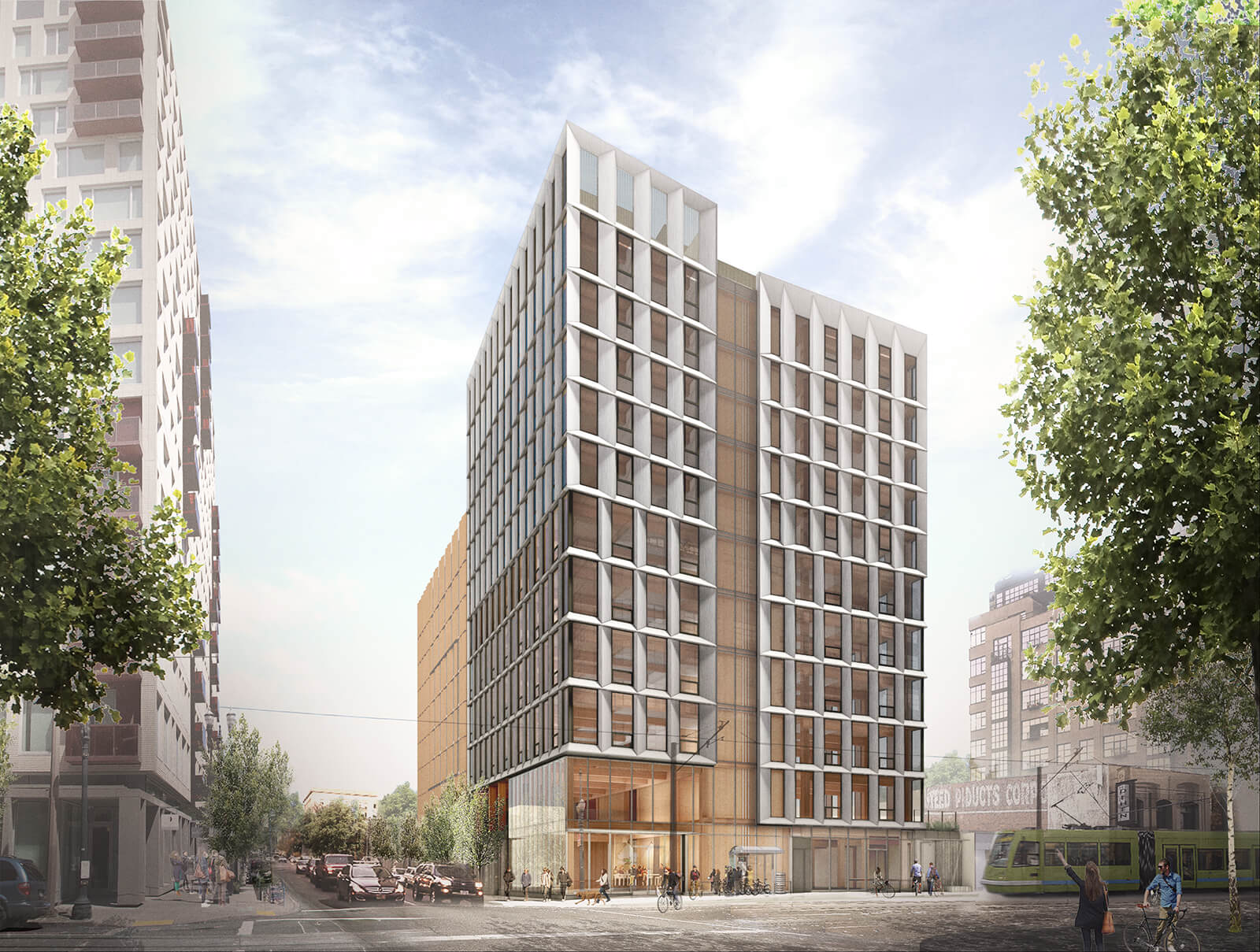
Hallová’s arguably most influential project with Project^ went unbuilt. Designed in 2017 by LEVER Architecture, Framework was poised to become the country’s first mass-timber high-rise after earning a $1.5 million U.S. Department of Agriculture grant to test and prove cross-laminated timber’s fire resilience. The project, which was called off largely because of post-2016 changes in the tax-credit market for affordable housing, provided a hard-won lesson and an epiphany.
“I did every single thing that anyone could ever do to try to make a project go forward,” Hallová said. “I thought, ‘What if I took that same energy and I poured that into the Black community?’”
Her final project before founding Adre was a new headquarters for one of Portland’s largest philanthropic organizations in the historically Black neighborhood of Albina. The effort was career-defining. The LEED Platinum–rated Meyer Memorial Trust headquarters, completed in 2020, was divided into two buildings—one framed with mass-plywood timber and the other traditionally stick-built like a house—so it would be easier to work with smaller contractors (many of them minority- and/or women-owned businesses) as well as journeymen and apprentices.
“There were a lot of eyes on us. I felt intense pressure to not be a gentrifier, and Anyeley completely understood that,” DePass recalled. At “any moment of disillusion, she was there to remind me we were doing this to prove that it could be done. And that really is Anyeley. She does not let anything stand in her way. And she does it with humor and grace.”
One of Adre’s upcoming projects takes the ideas of the Meyer headquarters a step further. Adre is developing a new headquarters, Building United Futures, for the nonprofit Black United Fund; the structure will house several other nonprofits and business-incubation space. There’s a bigger idea at work: It hopes to stem what L. M. Alaiyo Foster, president of the Black United Fund, calls a “talent flight” of young BIPOC Portlanders. “It’s an important part when you feel like you belong, when you’re part of something,” she said.
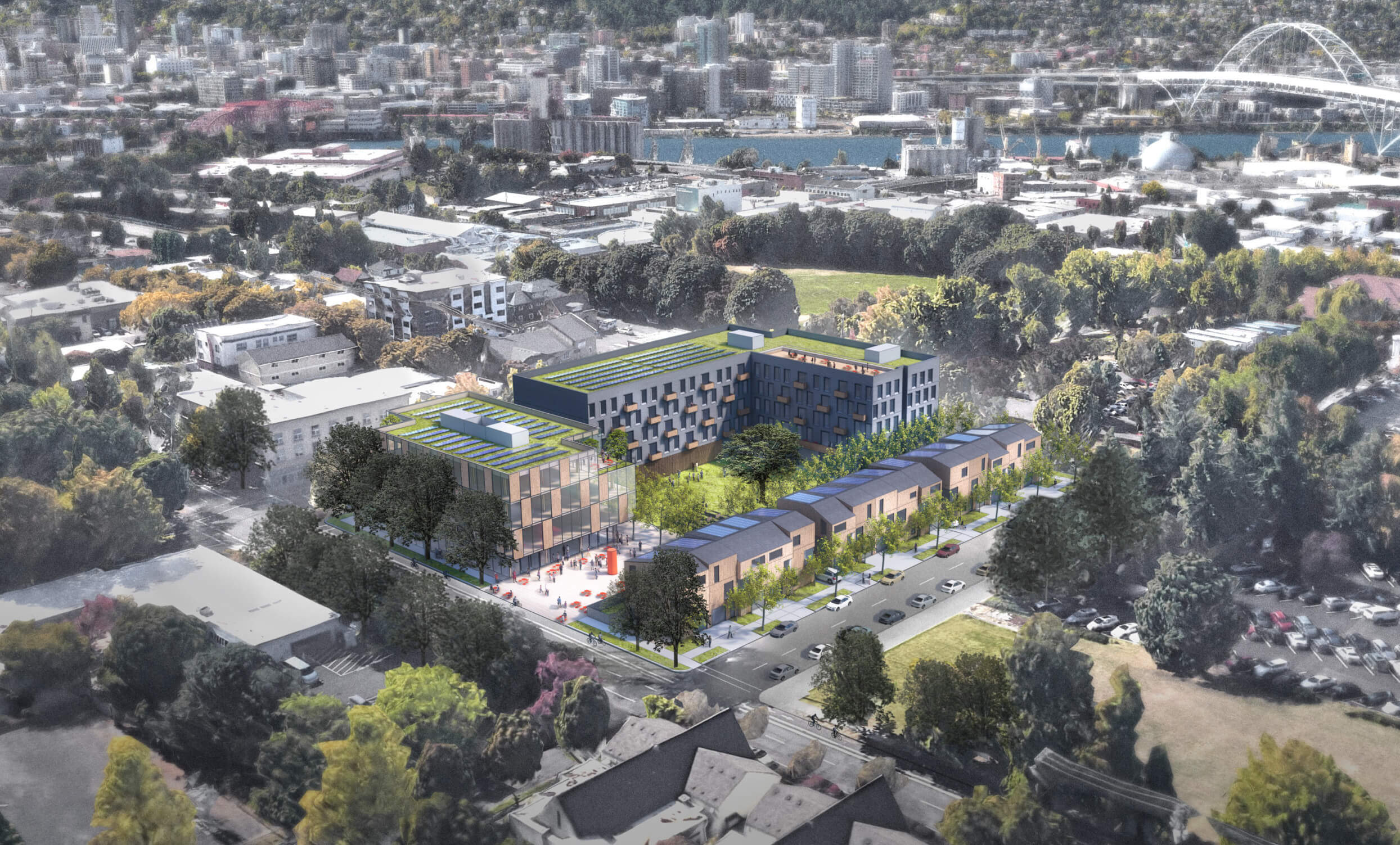
In July, Adre was named developer for the high-profile Williams & Russell redevelopment project on a decades-vacant land parcel where public officials forcibly displaced more than 120 Black families in the 1970s for a hospital expansion never built. In a historic public-private partnership, the land has been given back to the community, and Adre is developing the plot with the Williams & Russell Community Development Corporation (CDC). A LEVER Architecture–designed mix of offices, apartments, and townhouses cater to a variety of income levels, with a focus on intergenerational living and pathways to first-time homeownership. A variety of shared streets and landscape spaces will encourage a sense of community.
Adre was one of two finalists for the commission, and according to Bryson Davis, board chair of the Williams & Russell CDC and an attorney with PNW Business, the other proposal was more architecturally flashy. Adre won because of how Hallová understood the big picture and how she listened. “Instead of asking the broader market, ‘What do you want to buy?’ Adre is asking the local community, ‘What do you think is needed here?’ Anyeley’s able to communicate all of that in a way that puts people at ease,” Davis said. “She brings a really optimistic energy.”

One upcoming Adre project lies far beyond inner-city Portland: The 80-acre Parrot Creek Ranch in rural Clackamas County will see its 30,000-square-foot multi-building campus rebuilt for a nonprofit that provides intensive residential care and treatment for traumatized youth. Designed by El Dorado, an architecture practice with offices in Kansas City and Portland, the project combines indoor and outdoor spaces and uses nature as a tool for healing.
“[Hallová is] able to balance these social pursuits that she’s so passionate about with the capitalist machine that she’s working within,” said El Dorado partner Josh Shelton. “That’s one of the special things about Anyeley: her decision to tackle the world on her own terms.”
And those terms ultimately are about democratizing and spreading the impact of green design principles—not just to save resources or reduce carbon but to plant deeper seeds of change. “To me it’s not sustainable if it’s just environmentally sustainable [and] different constituencies and parts of the community don’t feel part of it,” Hallová said. “It’s all about telling stories in the landscape.”
Brian Libby is an architecture and arts journalist based in Portland and has written for The New York Times, Metropolis, and Dwell.








